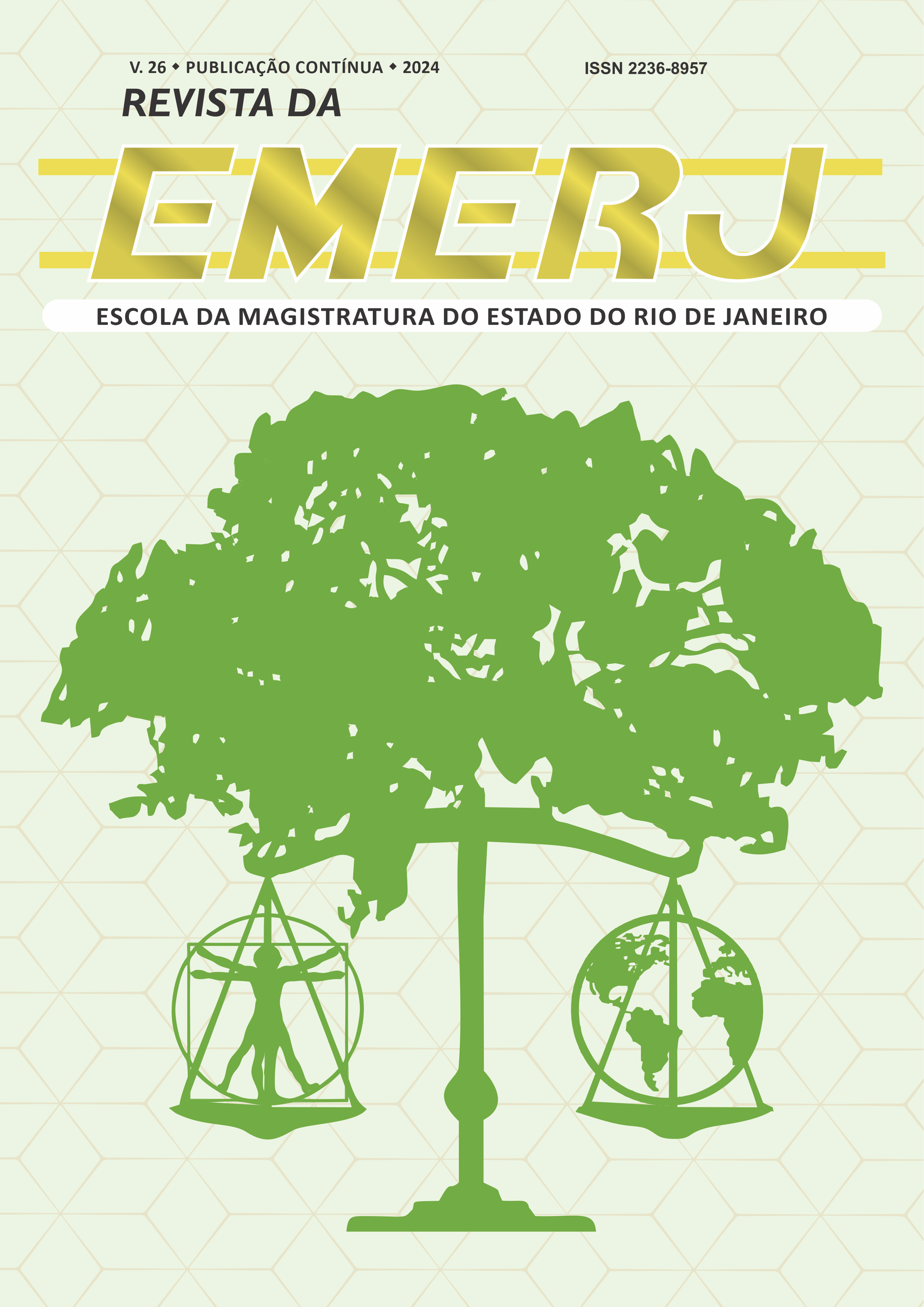Smart cities through the lens of the right to the city
literature review and proposal of a conceptual framework
Keywords:
right to the city, smart cities, governance, information Technology, communicationAbstract
This research aimed to highlight the main concepts related to the context of smart cities and how they intersect with aspects of the right to the city, placing the citizen at the forefront of this discussion. In this approach, the goal was to examine these concepts in light of the paradigmatic evolution of public administration, especially regarding the characteristics of governance models and public value. To achieve this, a Systematic Literature Review (SLR) was conducted to integrate previous studies on the topic and expand the research field. As a result, it was identified that research streams encompass themes related to public governance, digital and social inclusion, citizen participation, regulation, and mobility, broadening the discussion on the role of information and communication technologies as a means of citizen engagement and expanding dialogue with the government, distancing this approach from a data-focused and essentially economic models view. As a contribution, a conceptual framework summarizing the aspects identified in the SLR was proposed, along with a research agenda based on critiques from selected articles on the topic.
References
ALBINO, Vito; BERARDI, Umberto; DANGELICO, Rosa Maria. Smart cities: definitions, dimensions, performance, and initiatives. Journal of urban technology, [s.l.], v. 22, n. 1, p. 3-21, 2015.
AMENDOLA, Giandomenico. Vivere la città in tempo di crisi. Sociologia urbana e rurale, [s.l.], n. 112, p. 10-17, 2017.
ANDRADE, Michelle Ruiz. Digital india’s smart transform-nation: enabling or discouraging a ‘Chatur Citizenry’?. Asiascape: Digital Asia, [s.l.], v. 6, n. 3, p. 237-276, 2019.
ANDRADE, Elisabete Agrela de; FRANCESCHINI, Maria Cristina Trousdell. The right to the city and international urban agendas: a document analysis. Ciencia & saúde coletiva, [s.l.], v. 22, p. 3849-3858, 2017.
ATTARD, Judie et al. A systematic review of open government data initiatives. Government information quarterly, [s.l.], v. 32, n. 4, p. 399-418, 2015.
BRETHERTON, Jason. Christchurch's high performance rebuild. Procedia engineering, [s.l.], v. 180, p. 1044-1055, 2017.
CARDULLO, Paolo; KITCHIN, Rob. Smart urbanism and smart citizenship: the neoliberal logic of ‘citizen-focused’smart cities in Europe. Environment and planning C: politics and space, [s.l.], v. 37, n. 5, p. 813-830, 2019.
CARVALHO, Luís; SANTOS, Inês Plácido; VAN WINDEN, Willem. Knowledge spaces and places: from the perspective of a “born-global” start-up in the field of urban technology. Expert Systems with Applications, [s.l.], v. 41, n. 12, p. 5647-5655, 2014.
CASTELNOVO, Walter; MISURACA, Gianluca; SAVOLDELLI, Alberto. Smart cities governance: the need for a holistic approach to assessing urban participatory policy making. Social Science Computer Review, [s.l.], v. 34, n. 6, p. 724-739, 2016.
CASULA, Mattia. Quem governa na governança (local)? Reflexões teóricas e evidências empíricas. Revista de Administração Pública, [s.l.], v. 51, p. 1121-1138, 2017.
CORDELLA, Antonio; BONINA, Carla M. A public value perspective for ICT enabled public sector reforms: a theoretical reflection. Government information quarterly, [s.l.], v. 29, n. 4, p. 512-520, 2012.
CRESWELL, J. W. Investigação Qualitativa e Projeto de Pesquisa: escolhendo entre cinco abordagens. Porto Alegre: Penso Editora, 2014
GARAU, Chiara; ANNUNZIATA, Alfonso; CONI, Mauro. A methodological framework for assessing practicability of the urban space: the survey on conditions of practicable environments (SCOPE) procedure applied in the case study of Cagliari (Italy). Sustainability, [s.l.], v. 10, n. 11, p. 4189, 2018.
GUIMARÃES, Patrícia Borba Vilar; ARAÚJO, Douglas da Silva. O direito à cidade no contexto das smarts cities: o uso das tic’s na promoção do planejamento urbano inclusivo no Brasil. Revista de Direito da Cidade, [s.l.], v. 10, n. 3, p. 1788-1812, 2018.
GUIMARÃES, Patrícia Borba Vilar; SILVA, Lucas do Monte. Autorregulação jurídica no urbanismo contemporâneo: smart cities e mobilidade urbana. Direito da Cidade, [s.l.], v. 8, n. 4, 2016.
HAARSTAD, Håvard. Where are urban energy transitions governed? Conceptualizing the complex governance arrangements for low-carbon mobility in Europe. Cities, [s.l.], v. 54, p. 4-10, 2016.
JACOBI, Pedro. A cidade e os cidadãos. Lua Nova: revista de cultura e política, [s.l.], v. 2, p. 22-26, 1986.
KUMMITHA, Rama Krishna Reddy; CRUTZEN, Nathalie. How do we understand smart cities? An evolutionary perspective. Cities, [s.l.], v. 67, p. 43-52, 2017.
LINDSAY, Colin; OSBORNE, Stephen P.; BOND, S. U. E. The ‘new public governance’ and employability services in an era of crisis: challenges for third sector organizations in Scotland. Public Administration, [s.l.], v. 92, n. 1, p. 192-207, 2014.
MALEK, Jalaluddin Abdul; LIM, Seng Boon; YIGITCANLAR, Tan. Social inclusion indicators for building citizen-centric smart cities: a systematic literature review. Sustainability, [s.l.], v. 13, n. 1, p. 376, 2021.
MARSAL-LLACUNA, Maria-Lluïsa. Building universal socio-cultural indicators for standardizing the safeguarding of citizens’ rights in smart cities. Social Indicators Research, [s.l.], v. 130, p. 563-579, 2017.
O'FLYNN, Janine. From new public management to public value: paradigmatic change and managerial implications. Australian journal of public administration, [s.l.], v. 66, n. 3, p. 353-366, 2007.
OSBORNE, Stephen P. The new public governance? New York: Routledge, 2006.
OSBORNE, Stephen P. Ten years of public management review. Public management review, [s.l.], v.10, n.4, p.451-452, 2008.
OSBORNE, Stephen P.; RADNOR, Zoe; STROKOSCH, Kirsty. Co-production and the co-creation of value in public services: a suitable case for treatment?. Public management review, [s.l.], v. 18, n. 5, p. 639-653, 2016.
OSBORNE, Stephen P. Public management research over the decades: what are we writing about?. Public Management Review, [s.l.], v. 19, n. 2, p. 109-113, 2017.
PAPASTAMATIOU, Ilias et al. How “OPTIMUS” is a city in terms of energy optimization? e-SCEAF: a web based decision support tool for local authorities. Information Fusion, [s.l.], v. 29, p. 149-161, 2016.
VAN DER GRAAF, Shenja. The right to the city in the platform age: child-friendly city and smart city premises in contention. Information, [s.l.], v. 11, n. 6, p. 285, 2020.
PEREIRA, Gabriela Viale et al. Smart governance in the context of smart cities: a literature review. Information Polity, [s.l.], v. 23, n. 2, p. 143-162, 2018.
RADNOR, Zoe et al. Operationalizing co-production in public services delivery: the contribution of service blueprinting. Public Management Review, [s.l.], v. 16, n. 3, p. 402-423, 2014.
RUHLANDT, Robert Wilhelm Siegfried. The governance of smart cities: a systematic literature review. Cities, [s.l.], v. 81, p. 1-23, 2018.
DE SÁ, Thiago Hérick et al. Right to the city and human mobility transition: the case of São Paulo. Cities, [s.l.], v. 87, p. 60-67, 2019.
TILLIE, Nico; VAN DER HEIJDEN, Roland. Advancing urban ecosystem governance in Rotterdam: from experimenting and evidence gathering to new ways for integrated planning. Environmental science & policy, [s.l.], v. 62, p. 139-144, 2016.
THIBAULT, Mattia. Understanding urban gamification-playful meaning-making in real and digital city spaces. International Journal of Arts and Technology, [s.l.], v. 12, n. 1, p. 3-17, 2020.
KEMPIN REUTER, Tina. Human rights and the city: including marginalized communities in urban development and smart cities. Journal of Human Rights, [s.l.], v. 18, n. 4, p. 382-402, 2019.
TOOTS, Maarja. Why E-participation systems fail: the case of Estonia's Osale. ee. Government Information Quarterly, [s.l.], v. 36, n. 3, p. 546-559, 2019.
WOODS, Orlando. Subverting the logics of “smartness” in Singapore: smart eldercare and parallel regimes of sustainability. Sustainable Cities and Society, [s.l.], v. 53, p. 1-7, 2020.
YANG, Chamee. Historicizing the smart cities: genealogy as a method of critique for smart urbanism. Telematics and informatics, [s.l.], v. 55, 2020.
Downloads
Published
How to Cite
Issue
Section
License
Copyright (c) 2024 Erica Von Raschendorfer Bastos Maia, Dra. Ariane Cristine Roder Figueira

This work is licensed under a Creative Commons Attribution 4.0 International License.
Authors who publish in this Journal agree to the following terms:
- Authors retain copyright and grant the Journal of Constitutional Research the right of first publication with the article simultaneously licensed under the Creative Commons - Attribution 4.0 International which allows sharing the work with recognition of the authors and its initial publication in this Journal.
- Authors are able to take on additional contracts separately, for non-exclusive distribution of the version of the paper published in this Journal (eg.: publishing in institutional repository or as a book), with a recognition of its initial publication in this Journal.
- Authors are allowed and encouraged to publish their work online (eg.: in institutional repositories or on their personal website) at any point before or during the submission process, as it can lead to productive exchanges, as well as increase the impact and the citation of the published work (see the Effect of Open Access).


















